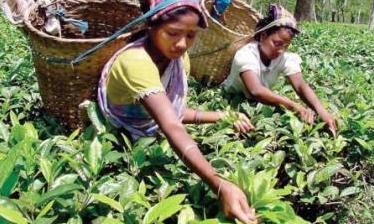The once-thriving tea gardens in the fertile Dooars region of West Bengal have been facing hard times. We all know India is the second largest producer of tea in the world. According to the 2014-15 report of the national tea board, India produces 23 percent of the global share of tea, of which 78 percent is produced in Assam and West Bengal. The tea industry is considered as the country’s second largest employer.
But do you know that the tea industry also undermines labour rights and deprives workers and their families of the most basic needs. There’s widespread poverty, malnutrition, illiteracy, alcoholism, forced migration,human trafficking and starvation death: obvious factors underscoring the desire for a better life. The availability of basic facilities like healthcare and education is also poor.

Few years back the gardens provided a livelihood to a majority of the area’s tribal population but when they began to be slowly closed down, depriving the area’s labourers of jobs and forced them to migrate. added that there are 200-250 trafficking agents in Dooars region, each with a specific area of operation, as per local news
Dooars’ tea gardens have now become a hotbed for trafficking, owing to the undermining of labour rights and rising deprivation. As production declines, exploitation and deprivation rise.
Many tribal children quit school and do jobs to supplement their family’s income.
Even higher education is another distant hope for those who grow up on tea gardens. Sanjay Lohara of Mechpara tea garden said, “We have to travel 17 km to reach the higher secondary school.”
During the election campaign speeches earlier this year, Indian Prime Minister Narendra Modi had promised to look into the issues of the plantation workers.
But the condition of the workers has not changed. While most migrated, those who stayed back took other jobs, which pay much lower than the daily wage fixed by the government.
A legislation passed last month promised the minimum wage to all the workers in the country, but it is yet to be implemented in the tea gardens in the Dooars.

